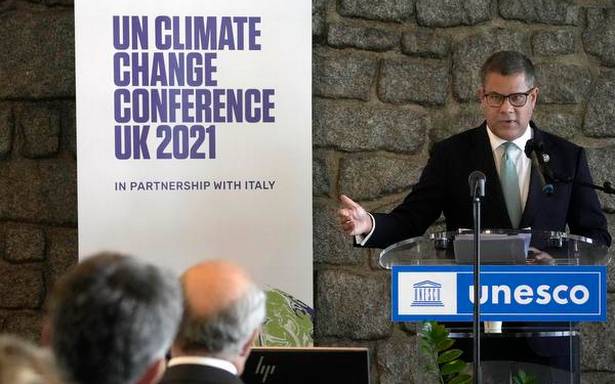The global carbon budget to limit global warming to 1.5°C will be exhausted by November 2026.
The Paris Agreement climate targets are increasingly getting out of reach as the world’s publicly listed companies will cause global temperatures to rise by 3°C, according to the latest MSCI Net-Zero Tracker.
With less than 10% of public companies aligned with a 1.5°C temperature rise threshold, the global carbon budget to limit global warming to 1.5°C will be exhausted by November 2026.
This timeframe has moved forward by five months in just 90 days since the launch of the Net-Zero Tracker in July.
Henry Fernandez, Chairman and Chief Executive Officer, MSCI, comments: “The findings of the MSCI Net-Zero Tracker should dramatically increase the world’s sense of urgency to reduce greenhouse gas emissions. As the extreme weather events of 2021 have reminded us, climate change is not a ‘potential’ problem 30 or 40 years down the road. It is a clear and present danger to our way of life right now. What we do over the next half-decade — and especially at COP26 in Glasgow — could make the difference between avoiding or experiencing the worst climate impacts. We urge firm action rather than words at COP26 to divert the world from an imminent crisis and chart a path toward a sustainable future.”
Emissions are set to rise by 6.7% in 2021
The rapidly shrinking timeframe is being driven by the significant rise in greenhouse gas emissions from public companies as global economic activity rebounds.
The Net-Zero Tracker, a quarterly gauge of climate change progress across a global universe of 9,300 public companies based on the MSCI All Country World Investable Market Index (ACWI IMI), finds that company emissions are set to rise by 6.7% this year.
No sector or region is safe
The Net-Zero Tracker also found that less than half of listed companies are aligned with a 2°C temperature rise. No sector or region is aligned with the 2°C target.
Even low emitting industries such as health care, information technology and financial services have outliers consuming a disproportionate share of their industry’s remaining budget.
From a regional perspective, although companies in developed economies are projected to become more carbon-efficient this century, every region is still emitting in excess.
The problem is most extreme in Emerging Markets (EM) EMEA, where the implied temperature rise of listed companies is 4.8°C, followed by EM Americas and EM Asia, which are set to rise by 3.8°C and 3.4°C, respectively.
To address this, companies need to cut their absolute carbon emissions by 10% a year on average. However, from 2016 to 2020, less than a quarter of the world’s publicly listed companies managed this feat.
Major gaps in the disclosure of emissions — the laggards has revealed
Remy Briand, Global Head of ESG and Climate at MSCI, adds: “While it is encouraging that some of the world’s largest listed companies are taking important steps by broadening their emissions reporting and setting decarbonization targets, the Net-Zero Tracker shows that major gaps still remain as many are failing to disclose this crucial information,” he said.
Mr. Briand added, “Climate disclosures are critical for investors to help them assess the carbon intensity of companies, to model climate-related financial risk and the impact on the performance of portfolios, and to allocate capital accordingly. Without accurate disclosures, the chances of companies and investors reaching net-zero is a distant reality. We call on policymakers and financial regulators at COP26 to make climate-related disclosures based on international standards mandatory.”
Source: Read Full Article

